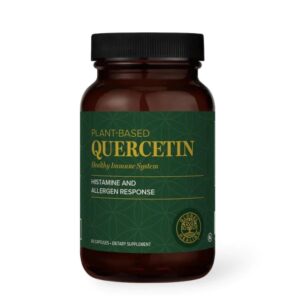Yellow is a happy color. Ask any child to draw the Sun, and she will use the brightest yellow crayon. The smiley emoji is yellow, too. And by the same token, where you see yellow in the plant world is also where you'll find a nutrient crucial to health and happiness. That nutrient is quercetin.
Ever heard of it? Quercetin is a natural compound found in various fruits, vegetables, and grains. In fact, it belongs to a group of plant pigments called flavonoids, which are known for their antioxidant properties. While its name might sound unfamiliar, the benefits it offers to the human body are remarkable and worth exploring. (1)
What is Quercetin?
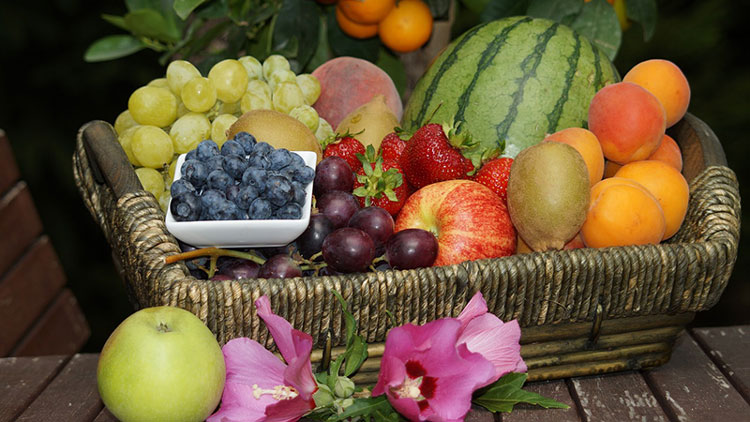
It's a flavonoid antioxidant that gives many fruits, vegetables, and grains their vibrant colors. Fortunately, the nutrient appears in abundance in foods like apples, berries, onions, kale, and red grapes. In addition to its role as an antioxidant, this nutrient has gained attention for other health benefits.
Benefits of Quercetin
1. Powerful Antioxidant

First and foremost, this compound acts as a potent antioxidant, helping to neutralize harmful free radicals in the body. According to this 2022 analysis published in Molecules, quercetin boasts effective antioxidant and anti-toxin benefits. In fact, researchers conclude that "quercetin is a natural and safe antioxidant with minimal side effects." Because free radicals can damage cells and contribute various diseases, including heart disease and cancer, this compound offers natural protection. (2)
2. Anti-inflammatory Properties
Next, you know that inflammation is a natural response to damage in the body. For example, a cut leads to inflammation, which draws blood and cells to repair the damage. Chronic inflammation, however, causes on-going damage to healthy tissue. So we need to limit chronic inflammation. Quercetin modulates the body's response to toxins, especially reactive oxygen species, which limits inflammation. Chronic inflammation is linked to many health conditions, such as arthritis, diabetes, and obesity. (3)Pro Tip: The Mediterranean Diet supplies an ample amount of nutrients for health and longevity.
3. Heart Health
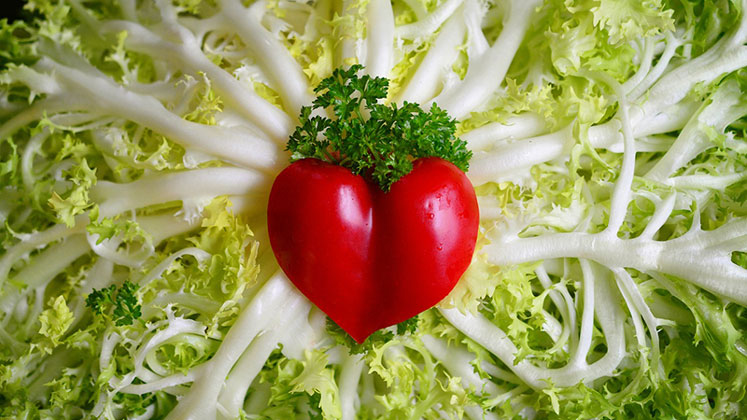
First, it's clear that quercetin protects against chronic inflammation. Second, in a 2020 issue of the American Journal of Preventive Cardiology, researchers noted that heart disease progression is "driven by... constituents of the inflammatory response." (4)
So it makes sense that this nutrient has been associated with cardiovascular benefits, including improved heart health. It may help lower blood pressure, reduce cholesterol levels, and promote overall heart function, potentially lowering the risk of heart disease. (5)
4. Supports Renal Health
OK - do you know anyone who's had gout or kidney stones? These conditions can be very painful. The medical term for too much uric acid in the blood is hyperuricemia. Updated statistics from the NIH claim that 38 million Americans suffer from this condition. That's 11% of the population! (6, 7)
Not only that, other conditions, such as cardiovascular disease and chronic kidney disease, stem from hyperuricemia.
Fortunately, scientists have analyzed the benefits of quercetin for high uric acid levels. A 2022 meta-analysis showed that different mechanisms of quercetin (including antioxidant and anti-inflammatory!) help to clear urate and ameliorate conditions that stem from hyperuricemia. (8)
Pro Tip: Check out this post on uric acid, which includes a healing smoothie recipe!
5. Immune Support
Research indicates that quercetin may support immune function by modulating the immune response and exhibiting antiviral and antibacterial properties. This makes it valuable in supporting the body's defense against infections and illnesses. (6)
Furthermore, a 2021 study out of Italy showed that quercetin supplementation (with a specific branded supplement) reduced days of hospitalization for covid-19 infection by a whopping 91%! (7)
5. Exercise Performance

So if quercetin helps with inflammation, it makes sense that it may help with exercise performance. Specifically, this compound helps prevent exercise-induced muscle damage (EIMD) and mitigates delayed-onset muscle soreness (DOMS). It has been studied for its potential to enhance exercise performance and recovery by increasing endurance, reducing inflammation, and supporting muscle function. Athletes and active individuals may benefit from its use as a natural supplement. (8, 9)
Food Sources of Quercetin
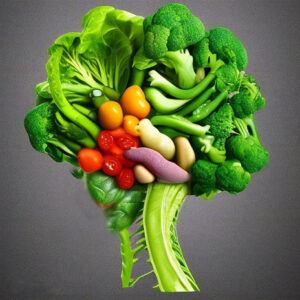
As you can see, this nutrient is naturally present in many plant-based foods, making it easy to incorporate into your diet. But also note that quercetin tends to be in higher percentages in the skin and leaves. What's more, sunlight boosts its levels, so an apple from the top of the tree may have more of the compound than an apple on a shaded lower branch. (10)
Finally, the most common food sources include the following: (11)
- Capers
- Onions, especially red onion
- Red apples
- Tomatoes, especially grape tomatoes
- Berries (such as strawberries, blueberries, and cranberries)
- Kale
- Red grapes
- Broccoli
- Cherries
- Green tea
Including a variety of these foods in your diet can help ensure an adequate intake of this and other beneficial nutrients.
Quercetin Benefits The Immune System In Other Ways!
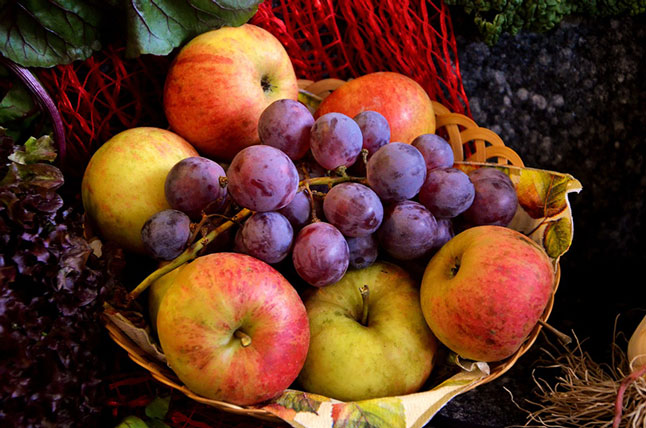
One fascinating aspect of quercetin is its ability to act as an ionophore for zinc. An ionophore is a molecule that facilitates the transport of ions across cell membranes. In the case of quercetin, it can help transport zinc ions into cells more efficiently. (12)
Why does this matter?
Well, zinc is an essential mineral that plays a crucial role in various physiological processes, including immune function, wound healing, and DNA synthesis. By acting as an ionophore for zinc, quercetin may enhance the intracellular levels of zinc, potentially amplifying its biological effects within the body. (13)
In fact, studies have shown that with adequate zinc levels in a cell, that cell will not succumb to takeover by a pathogen, such as a virus. So if you're a germ-theory subscriber, zinc is crucial! You want zinc in your cells to hamper viral replication. (14)
But how does zinc get in there? Well, it needs something to push it in, and that something is quercetin. (15)
Pro Tip! Combine Quercetin with Cymbiotika's Inflammatory Health.
Should You Supplement With Quercetin?
Yes is the short answer. It is a remarkable nutrient with numerous health benefits, ranging from its antioxidant and anti-inflammatory properties to its potential role in supporting heart health, immune function, and exercise performance. By incorporating quercetin-rich foods into your diet, you can harness its health-promoting effects and support overall well-being. Additionally, its ability to serve as an ionophore for zinc further highlights its importance in optimizing cellular function and health.
But sometimes getting the needed amounts of quercetin -- you know, the amounts used in many of the studies -- just isn't possible from diet alone. Sure, incorporating quercetin-rich foods like fruits, vegetables, and grains into your daily meals can be a delicious and easy way to reap the benefits of this powerful nutrient. However, supplementing with quercetin is an excellent way to be sure you're getting enough.
Nevertheless, whether you enjoy them fresh, cooked, or as part of a smoothie or salad, quercetin-rich foods can be a valuable addition to a balanced diet aimed at promoting health and vitality.

